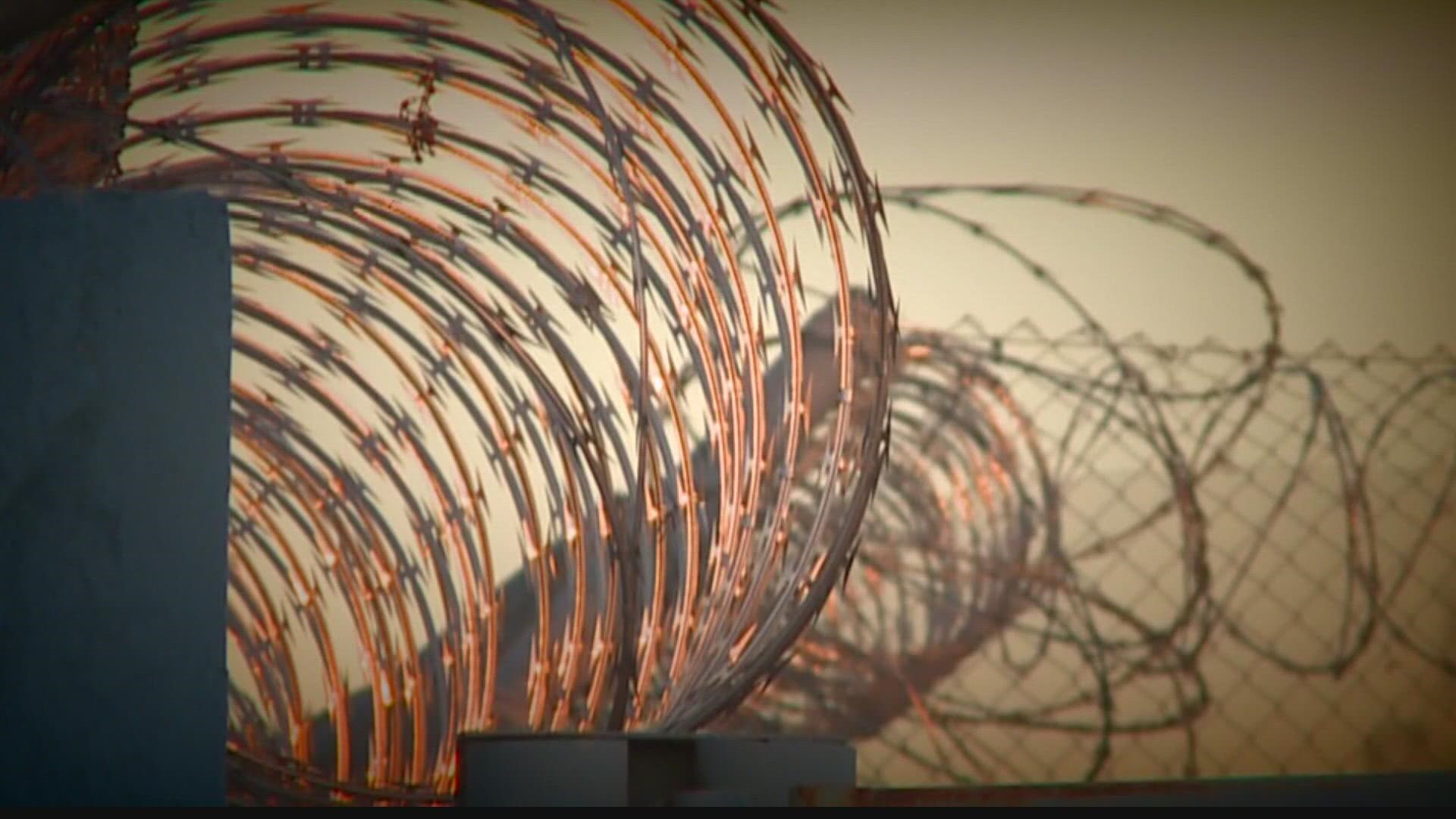ARIZONA, USA — In a 200-page ruling issued Thursday, a federal court said medical care, mental health care and solitary confinement conditions in the Arizona state prison system violate the Constitution.
In the ruling, the court said that the Arizona Department of Corrections, Rehabilitation, and Reentry (“ADCRR”) violated prisoners' basic right to health care and humane conditions of confinement protected by the Eighth Amendment prohibiting cruel and unusual punishment.
Editor's note: The video above is from a previous newscast.
It's been a fight that's gone on for nearly a decade where the department has been repeatedly accused of failing to provide inmates in state prisons with proper health care.
The original class-action lawsuit filed back in March 2012 focused on more than a dozen inmates who detailed problems with medical, mental and dental health care, like some inmates not getting care or treatment quickly enough.
RELATED: Arizona's prisons director claims inmates have faster access to healthcare than private citizens
This suit was brought by prisoners in the custody of ADCRR, alleging the department did not provide sufficient health care and humane conditions in maximum custody units.
"At the end of the day, there is a human cost to it," said Corene Kendrick, Deputy Director of the ACLU's Prison Project. "It's not just a decade of my life, or the ACLU's. It's time trying to get the state of Arizona to live up to its promises."
The court on Thursday ruled in favor of the prisoners, saying the prisoners’ health care system is “grossly inadequate.”
The ruling went on to say that ADCRR has been aware of its failures for years and has refused to take necessary actions to remedy the failures. Their inaction poses a substantial risk of serious harm posed by the lack of adequate medical and mental health care affecting all prisoners.
Judge Rosalyn Silver, who wrote the findings, also called out ADCRR Director David Shinn multiple times, saying he "adopted a strategy of pretending the problems he knows about do not exist.”
She added that his testimony of people having better access to healthcare in prison than in the community was “detached from reality.”
Shinn became the ADCRR Director in 2019.
In addition, the court ruled ADCRR keeps thousands of prisoners in restrictive housing units, and does not provide prisoners adequate nutrition or meaningful out-of-cell time which denies them basic human needs.
The court ruled ADCRR:
- Failure to provide timely access to health care;
- Failure to provide timely emergency treatment;
- Failure to (timely) provide necessary medication;
- Insufficient health care staffing;
- Failure to provide care for chronic diseases;
- Failure to provide timely access to medically necessary specialty care;
- Failure to provide mentally ill prisoners medically necessary mental health treatment (i.e., psychotropic medication, therapy, and inpatient treatment);
- Failure to provide suicidal and self-harming prisoners basic mental health care;
- Inadequate psychiatric monitoring because of chronic understaffing;
- Lack of recreation;
- Extreme social isolation; and
- Insufficient nutrition
"She really goes into multiple examples of people who died preventable deaths because of failures to provide basic health care to recognize symptoms of serious conditions such as cancer," said Kendrick, referring to the judge's findings.
ADCRR issued the following statement Friday afternoon and did not address the judge's specific findings on Director David Shinn:
ADCRR is reviewing the ruling. We remain committed to working collaboratively with the Court, Plaintiffs’ counsel, and appointed experts to meet the healthcare needs of those in our custody and care. We will continue to actively look for opportunities to enhance healthcare delivery methods and protocols, and to upgrade the electronic medical record system.
The next steps, in this case, will come from an order expected to be issued later this summer by Judge Silver.
Kendrick says she other plaintiffs asked for the federal court to take charge of the prison system and hopes to see de-privatization in healthcare providers and limits on solitary confinement.
Governor Ducey's Office did not respond to a request for comment Friday.
Arizona's prison system has been under fire for some time. Last year, a report released by the Arizona Auditor General found most inmates in the state Department of Corrections weren't able to enroll in substance abuse or cognitive restructuring programs.
In 2019, the Lewis prison in Buckeye was questioned after close-custody inmates had tampered with their cell doors so they could be opened from the inside. A video released by the Arizona Corrections Peace Officer Association shows several inmates attacking officers.
Charles Ryan retired as Arizona corrections director shortly after a scathing report accused him of ignoring persistent problems with broken prison cell locks that put both corrections officers and inmates at risk.
Up to Speed
Catch up on the latest news and stories on the 12 News YouTube channel. Subscribe today.

